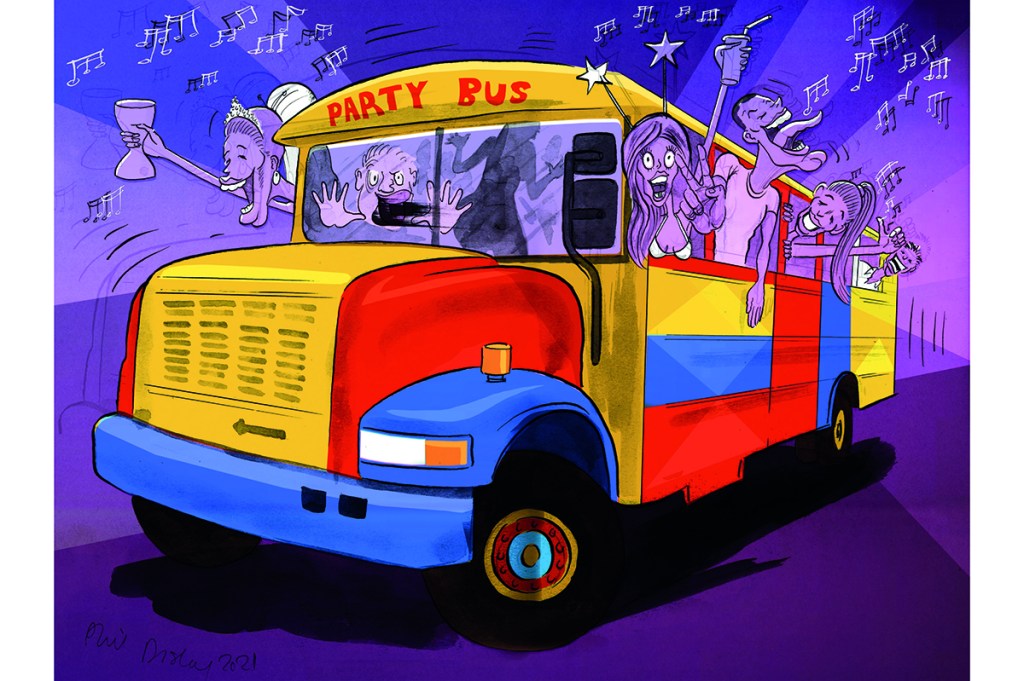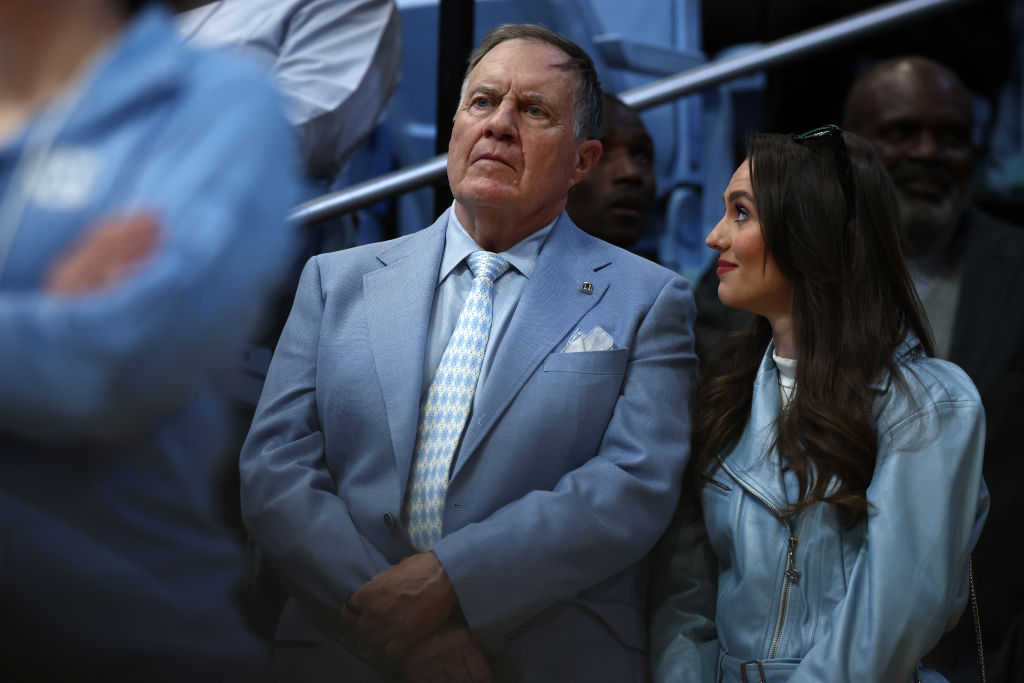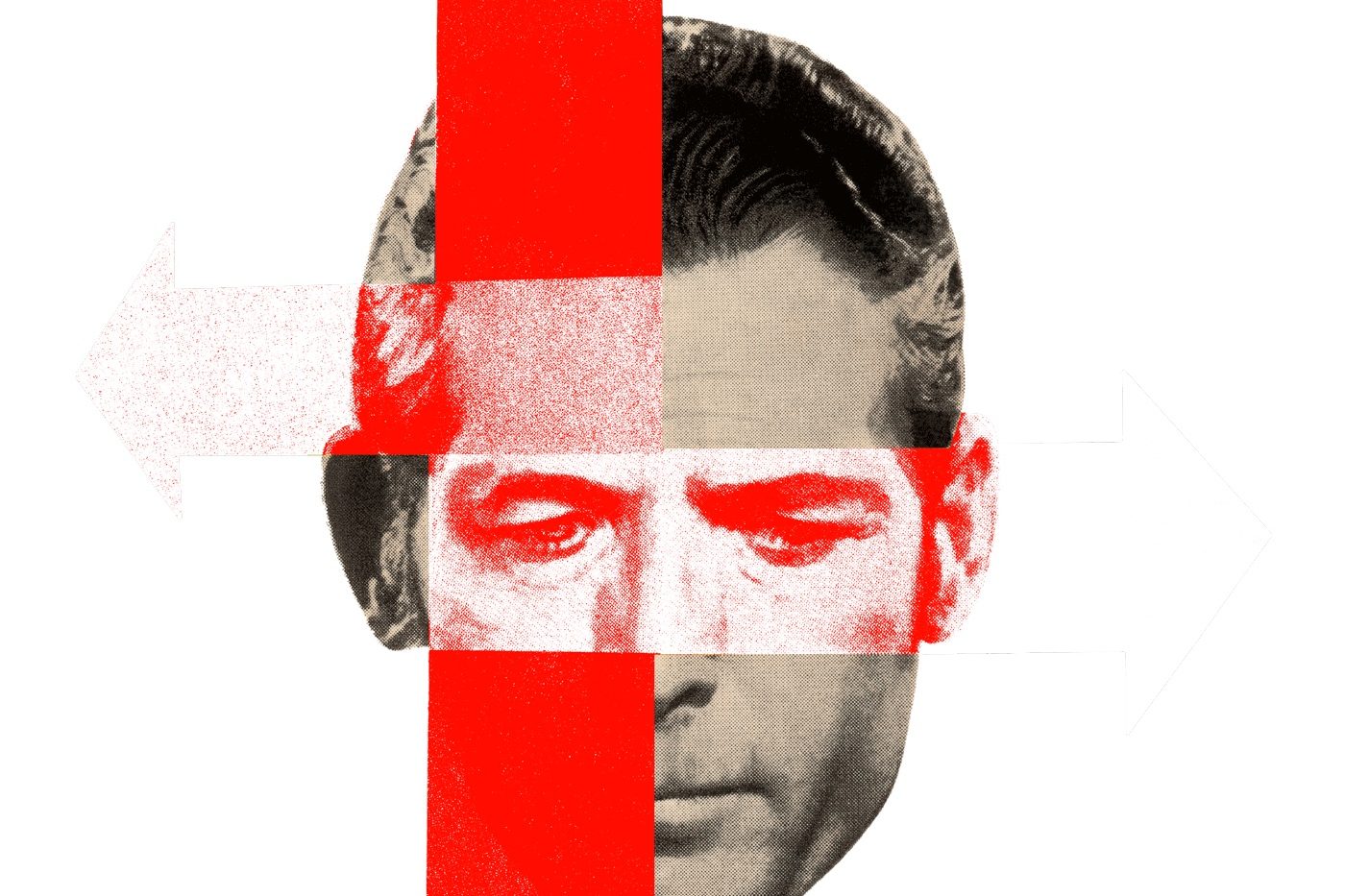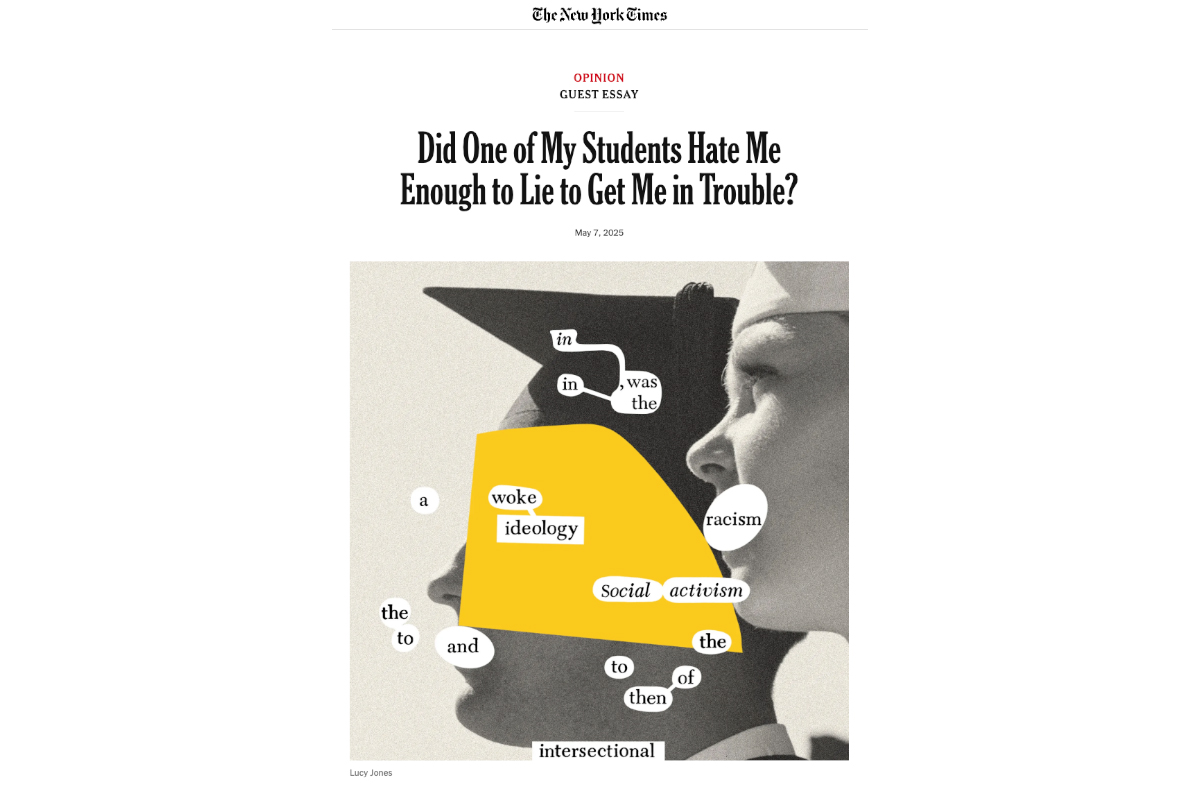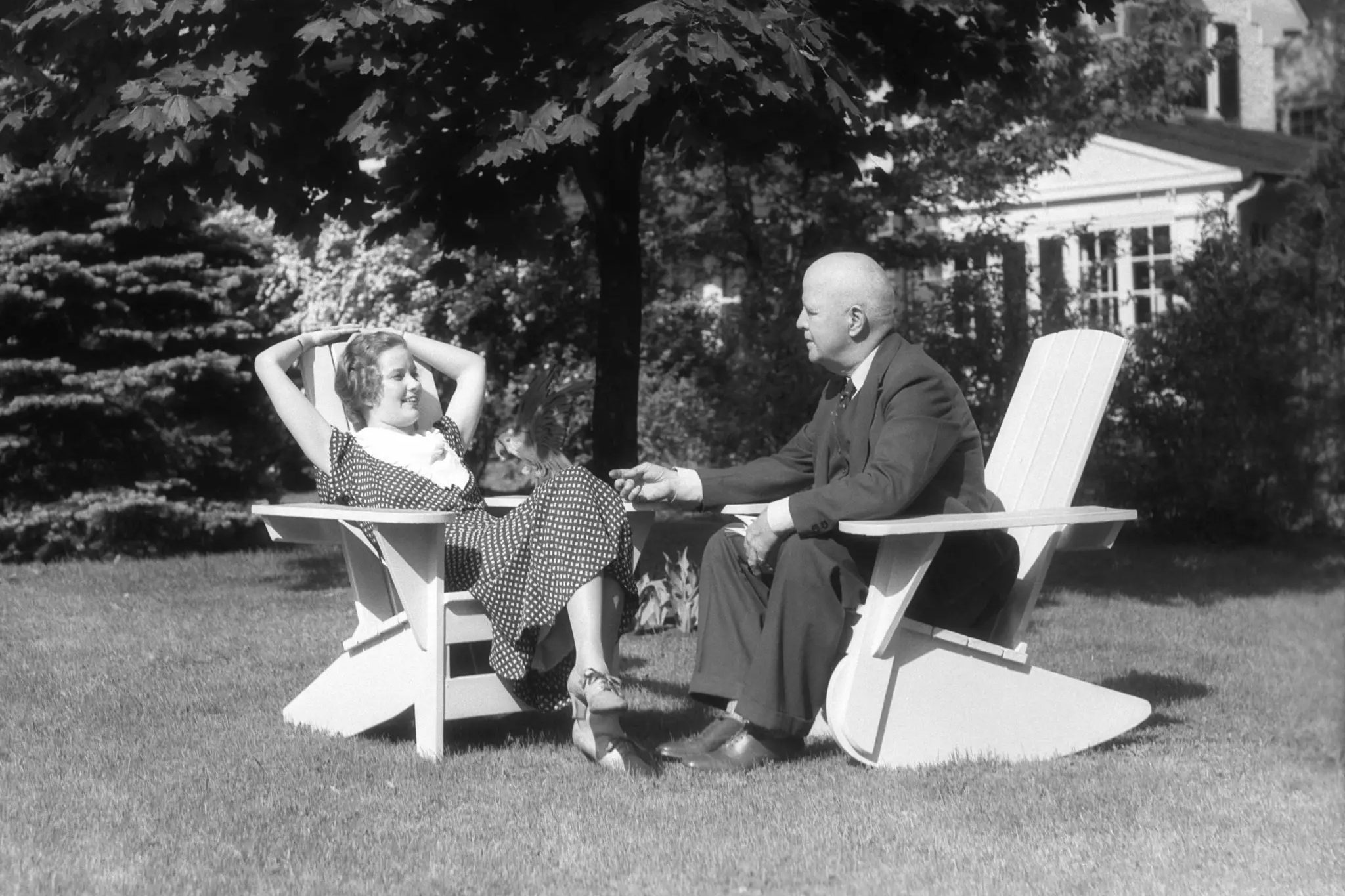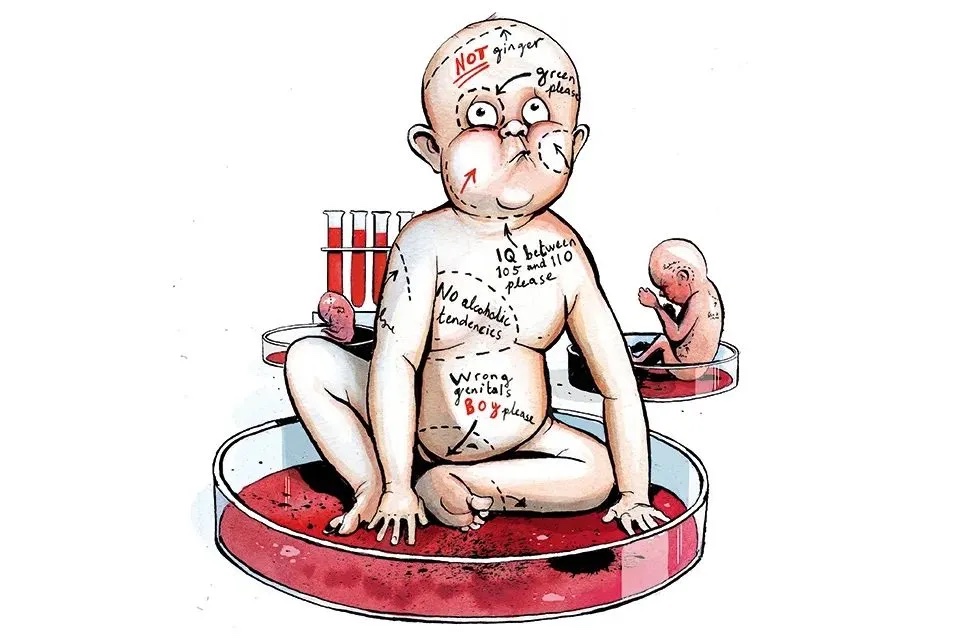One Friday night last fall, while the blue states were locked down, my girlfriend and I were having dinner in Coral Gables, Florida, an upscale suburb of Miami-Dade County. Our restaurant was packed, as were the surrounding joints, and I remember distinctly thinking, ‘Thank goodness I’m in Miami.’ I wasn’t relieved to be in Florida, or even the United States, but in Miami: my beloved, loathed hometown, my sexy muse and perpetual antagonist. Then, just as we were getting into our groove, I heard the reggaeton in the distant tropical night. ‘No,’ I thought, ‘not during a pandemic — it can’t be.’ But I sure hoped it would be. My girlfriend shook her head in disgust. She knew what was coming.
Reggaeton is a genre that I love or despise depending on my level of intoxication. The noise grew louder, signaling the arrival of the most innovative vehicle since the Model-T. My fork was now bouncing off the plate as the vehicle’s strobe lights lit up the restaurant’s patio. I don’t remember if I jumped up from my seat: I was caught up in a Miami moment when you lose track of yourself and let the city take over. The party bus — that beautiful, grotesque, retrofitted yellow school bus with a DJ booth in the back — parked in front of the restaurant. Inside, dozens of partiers were drinking and dancing, reveling in the antisocial, belligerent freedom only Miami can offer. They were the freest people on the planet. There was no pandemic. There was no social distancing. There was only, as a friend likes to say when asked to describe Miami, liquor and ass.
The diners were no longer dining. The ratchet Miami spectacle had transformed our quiet night out into an impromptu dinner show. We were all laughing and smiling and, above all else, approving. We’d gone out searching for Miami’s normalcy during a pandemic, and such was our good fortune that our Miami had pulled up drunk, loud and sexy. Even the ostensibly highbrow, who typically look down on the ass-shakers, approved. We were Miamians together: doctors and lawyers, Medicare fraudsters and Instagram models, even lowly cultural critics, all of us saying, ‘No damn pandemic will stop Miami.’
They’re coming to Miami again. People are always coming here: the Cubans, the Venezuelans, the Haitians, the Nicaraguans, each arrival reflecting a political or socioeconomic crisis over the horizon. Typically, these outsiders are foreigners escaping despotic regimes. Miami, a culturally Hispanic city whose landscape has been shaped by these migratory waves, is the perfect place for Spanish-speaking people looking for an American place, with American freedoms, that isn’t quite America. The Central and South Americans who make up most of our new arrivals can partake of the spoils of America without having to Americanize. To understand Miami, remember that a majority of its residents don’t think of themselves as Americans, or even Floridians. They’re Miamians.
After the Castro revolution, the Cubans reshaped Miami in their image and made it a multicultural haven. A recent arrival can get by speaking Spanish. Assimilation in the classic American sense — whatever that means anymore — isn’t required. This lack of expectations gives Miami its distinct flavor: the Miami Vibe. In Miami you’re in America, but not really. You hear Spanish everywhere and run into people with no understanding of classically American norms; it’s the ultimate cultural outpost. That has made it historically not only a haven for immigrants, but also for Americans who are down but not yet out, beaten up by the mainland. These domestic immigrants are also looking for the Miami Vibe. They too want to be in-America-but-not-really. The latest domestic outsiders to arrive are blue-state lockdown refugees, especially escapees from the control-freak dystopia of New York City, and tech bros and young professionals looking for some sun and surf. They’ve flooded in this year; for them, I only have one question: are you willing to transform into a Miamian?
The tech bros and the lockdown refugees are escaping blue-state bureaucracy. This makes the idea of Miami appealing, or so they think. They think they want — and can handle — the party bus and the scene that accompanies it. To which I say: are you sure? The party bus epitomizes Miami: it’s loud and constantly moving, it gathers partiers from different backgrounds and plies them with booze and other assorted goodies, and it smashes them into close quarters. Which language will you speak? You won’t know until someone who’s too close says something only slightly unintelligible. Was that English? Spanish? Spanglish? And where’s the party bus even going? Wynwood? Brickell? Yes. Maybe. The party bus goes where it goes, which is wherever the Miami night takes it. The bus arrives late and loud, dispenses partiers unpredictably, picks up a new batch and rides off again. A Miamian loves, or at least learns to tolerate, the city’s dysfunctional, Caribbean-style manner. Miami does not run the ‘American way’ or on American time: newcomers, if they are to stick around, must assimilate into the Miami way. They like the idea of the party bus; they might even enjoy the ride for six months to a year, but whether they stay on or hightail it back to their sensible blue states will be determined by this: will they become Miamians before Miami spits them out?
Miami’s position as a cultural outpost, and its utter disinterest in the goings-on of the ‘real America’ insulate us from the toxic ideologies that the elites have foisted on real American society. Wokeness and the deification of bureaucrats, two defining elements of the technocratic progressivism that is sucking the soul out of America, have not and will not take hold in Miami. A city that runs on carnality as much as on anything else will never embrace the desexualized androgyny of the woke. Try explaining to a hot Miami girl whose entire life revolves around maximizing her looks and sex appeal that she now has to embrace some gender-neutral aesthetic and can’t show off the ass she’s been working on at the gym, three days a week, for the better part of a decade. It’s not even that Miami is anti-woke; it simply has no concept of woke. Miami’s party-bus ethos and in-your-face sexuality functions as a firewall, preventing wokeness from latching onto the city’s beautifully sculpted and tanned hardbodies.
The firewall also keeps bureaucratic deification at bay. While elite blue-staters lapped up Anthony Fauci’s buzzword-laden HR-speak, Miami’s pandemic shutdown was much shorter than in similarly-sized American cities. Not only because the party bus had to keep chugging along: the working-class Hispanics and blacks who make up most of the city’s population neither speak nor respond to bureaucratese. Anthony Fauci, the spokesman for the panicked wine aunts and soy boys of blue-state America, was never going to connect in Miami. Not that he even tried. Say what you want about the impish bureaucrat, at least he understood his audience.
Most of the new outsiders have grown up in woke blue-state enclaves. They hit their bureaucratic limit during COVID and ran to Miami. But as we entered the most Miami of seasons, summer — hurricane season — we could see them realizing that the city might be a little too unlike America for their taste. They might want to be a Miamian or what they think a Miamian is, but their blue-state norms and sensibilities, their inculcated desire for bureaucratic order, their repressed longing for peace and quiet, will prevent them from committing to us long-term. They cannot become Miamians because in their heart of hearts they are blue-state Americans — they might take a season ticket on the party bus but aren’t comfortable with lifetime membership. The party bus is tacky and unserious and quite possibly dangerous — is it even legal to dance and drink aboard a retrofitted school bus with strobe lights flashing in the driver’s eyes? And they’d be right, of course. But so what? This is Miami. This is America-but-not-really! Shake your ass or get out!
The truth is, Miami is too wild, unwieldy and old-school American for most of these domestic outsiders. That’s right: Miami is the most un-American of major cities because it has resisted mainstream norms, most of which exist to neuter and debase the American spirit. Even if Spanglish is the city’s native language and the population is more concerned with looking good than worried about the ‘direction of the country’, Miami is more spiritually American — in the Platonic, pre-woke sense — than any other city.
The refugees from the blue states are running away from what we might call the New American Order of hyperwokism and technocratic control. This is a far cry from ‘Go West, young man’ America. Today a young man, a young family, anyone trying to escape the boredom and creepiness of the New American Order, must secede by emigrating not to the Old West, but to the wild, pre-woke America. It is only in the heaving, hedonistic Hispanic hotspot known as Miami that charm, guile and sex appeal, the classic American qualities that have been banished from blue states, still survive and prosper. In a country getting less classically American by the day, Miami is the last great bastion of Americanism — a perverted Americanism, yes, but Americanism nonetheless. Take the country-music-loving Cuban Americans who, without hipster affectation or shame, dress up in cowboyish garb, go mudding and drive pickup trucks up and down Miami’s congested streets, blasting Johnny Cash and Hank Williams Jr. Many of these Cuban cowboys probably aren’t even American citizens, but they proudly wave the flag and are far more spiritually American than the fifth-generation Northeastern bluebloods who publicly renounce their icky, ‘problematic’ heritage.
Blue-staters used to the New American Order struggle to adjust when they realize that political bloviating, intrinsic to blue-state identity, casts them as outsiders in a city where sexuality and debauchery are the dominant ideologies. The outsiders might be able to look past some of our little particularities and dysfunctions — the sexy waitresses who, outside of their otherworldly bodies, offer nothing but atrocious service, because everyone runs on ‘Cuban time’ — but they cannot accept that righteous bloviating will go unheard because the ruckus produced by the party bus is deafening. The true Miamian understands that to live in Miami is to be marooned in a city of wanton excess, suffocating sexiness and liberating insularity.
Recently, as Tropical Storm Elsa approached the coast, I was having lunch with a friend in the courtyard of an independent bookstore. At the table next to us, a group of newcomers were enjoying the beautiful Miami Sunday, their demure natures and pasty appearance betraying their outsider status. My buddy and I have taken to calling them invaders, which is what we were laughing about when the sky opened and unleashed a downpour the likes of which I’ve experienced no less than 10,000 times. The wind blew, the water sprayed our faces and my buddy and I continued our conversation, keeping an eye on the invaders. One of them, a sweet-looking lady straight out of a John Cheever short story, who had only recently tired of praying to St Anthony of Fauci and praising Andrew Cuomo, recorded this passing shower on her phone as though it was a tempest. My buddy shoved the beer bottle in his mouth in an attempt to control his laughter.
The rain picked up, and so did the wind. ‘It must be an outer band,’ the invader told her partner. Then the actual thunder came. The wind blew the rain horizontal. The boyfriend, who had the look of a tech bro, stood up, and they took shelter in the bookstore.
‘Pussies,’ my best friend said.
We were getting soaked, but going inside to join the invaders was not an option. We would enjoy the rest of our now waterlogged lunches, two glorious fools marooned in paradise.
‘Maybe a party bus pulls up,’ I said. ‘It’s too early.’‘It’s never too early in Miami, bro.’
This article was originally published in The Spectator’s October 2021 World edition.



